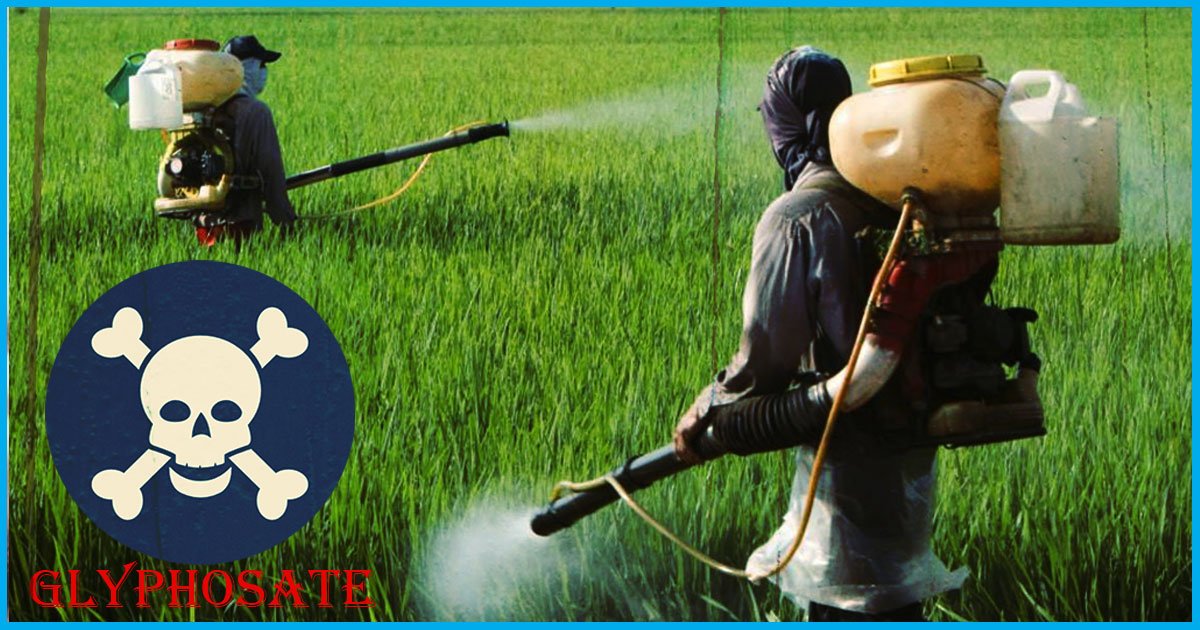
Weedicides Containing Glyphosate, Used In Farming, Can Cause Cancer; Recent Study Confirms
3 Nov 2017 10:18 AM GMT
In a recent study that has come up, it has been proved that rampant use of glyphosate has carcinogenic impacts, thus raising severe safety concerns. The study was carried out by the University of California, San Diego School of Medicine researchers.
Glyphosate is the crucial ingredient in the agro-giant Monsanto’s weedkiller, Roundup. The study also found that glyphosate use has increased fifteen times after the introduction of GM crops in the US since 1994 when GM “Roundup Ready” glyphosate-tolerant crops were introduced.
Dr Paul J. Mills, the research head, has pointed out, “Historically, it (glyphosate) is used on genetically modified soy and corn, but it is also sprayed on a substantial portion of wheat and oats grown in the US.”
It is dangerous because people are unaware of the fact that they are consuming this toxin every day, via their diet and it is this bioaccumulation of glyphosate that is sure to have adverse effects on health.
Referring to other studies, the authors have opined that consistently feeding animals an ultra-low dosage of glyphosate resulted in liver disorders similar to the nonalcoholic fatty liver disease in humans.
In India, the consumption of glyphosate was 148 million tonnes in 2014-15, the highest for any herbicide.
A similar study was carried out in 2010 by Indian scientists that had found out that glyphosate-induced weedicides have carcinogenic effects.
An Indian spokesperson for the agro-giant, Monsanto, reportedly said, “Glyphosate has a long history of safe use. All labelled uses of glyphosate of which Roundup is a leading brand, are safe for human health and environment. Moreover, no regulatory body in the world has concluded that glyphosate is carcinogenic.”
The Logical Indian Take
Environmentalists say that regulation of pesticide and herbicide use in India is abysmal. Around 50 farmers have died, and 800 are hospitalised in the Yavatmal and neighbouring districts of Maharashtra after an insecticide known as ‘Profex Super’ was sprayed on their Bt cotton plantations. They died after accidentally inhaling toxic fumes. At least 20 have lost vision too.
The deaths of the farmers have reopened the debate about using such pesticides which have been banned or restricted elsewhere in the world due to their high toxicity. Against the backdrop of the incidents, a Delhi-based organisation ‘Centre for Science and Environment (CSE)’ on 18 October came out with a list of seven immensely or highly hazardous pesticides which continue to be used in India despite these being banned in many countries.
In Europe, more than a million people have signed a petition against Monsanto’s Roundup weed killer, fearing it has carcinogenic impacts. Its license runs out in Europe on 15 December, and EU officials haven’t extended it. The World Health Organization (WHO) have said glyphosate may pose a carcinogenic threat to humans. The EU has postponed a critical decision on whether to re-authorize the use of glyphosate after the European Parliament voted in favour of phasing out the controversial herbicide by 2022.
The Logical Indian urges the authorities to look into the matter and ensure that the use of glyphosate-induced weedicides is reduced to a bare minimum if not banned altogether.
Eminent agricultural activist, Kavitha Kuruganti has started a petition addressing the Agriculture & Farmer’s Welfare Minister, Radhamohan Singh to ban glyphosate-induced weedicides and to stop its misuse; you can sign the petition here.
 All section
All section













